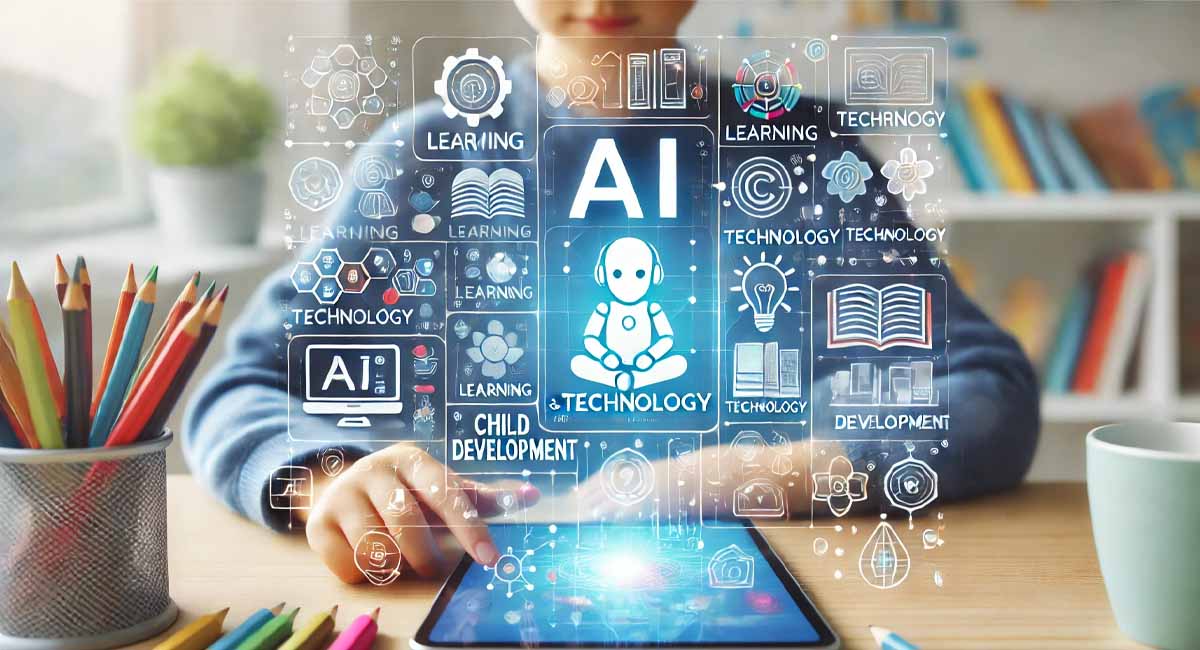How AI and Technology Are Shaping the Future of Early Childhood Education
In today’s rapidly evolving world, technology is making its mark in almost every sector, and early childhood education is no exception. For parents, the integration of AI and technology in early education opens exciting new avenues to support their child’s growth, track developmental milestones, and improve communication with caregivers. This blog explores the latest innovative tools and apps revolutionizing the childcare industry and explains how they can benefit both children and parents alike.
1. Personalized Learning Through AI-Powered Apps
AI-driven learning tools are transforming how young children engage with educational content. Many platforms use adaptive learning technology, where the app tailors the experience based on a child’s learning style and pace. These apps, like Khan Academy Kids or ABCmouse, offer personalized activities that challenge children appropriately without overwhelming them.
Why it’s beneficial:
Personalized Learning Paths: AI helps identify a child’s strengths and areas for improvement, allowing them to focus on skills they need to develop.
Engagement and Fun: Interactive, game-based formats ensure that learning feels like play, keeping children engaged for longer periods.
Parental Insight: Many of these apps provide progress reports, giving parents a clear understanding of their child’s development.
2. Tracking Developmental Milestones with AI
Every parent wonders if their child is hitting developmental milestones at the right time. With technology, there are now tools that offer parents deeper insights into their child’s growth. AI-powered apps like Babysparks track cognitive, emotional, physical, and social milestones, offering expert guidance on activities that promote further development.
Why it’s beneficial:
Tailored Suggestions: Apps can suggest activities or interventions to boost development in specific areas, based on data about your child’s progress.
Real-Time Feedback: Rather than waiting for a check-up, parents can continuously monitor their child’s progress and act on potential concerns earlier.
3. Enhanced Communication Between Parents and Providers
Communication is key to providing the best care and education for a child. With platforms like Eylog and HiMama, parents can now receive real-time updates on their child’s day-to-day activities, from what they ate at lunch to how they performed in their learning activities. These apps streamline communication by allowing childcare providers to send photos, messages, and even daily reports directly to parents’ phones.
Why it’s beneficial:
Transparency: Parents stay informed and connected throughout the day, reducing anxiety about what their child is experiencing in daycare or preschool.
Better Parent-Teacher Collaboration: Clear communication can foster stronger relationships between parents and educators, leading to more personalized care and attention for each child.
Convenient Documentation: Instead of waiting for in-person meetings, parents can track daily logs of behavior, meals, and learning activities, enabling them to reinforce lessons at home.
4. Interactive Learning with AI-Powered Toys
AI is not just limited to apps—smart toys like Cognitoys Dino or Osmo integrate AI to provide interactive learning experiences. These toys respond to children’s questions and engage in conversations that stimulate curiosity and learning. They also teach critical thinking, problem-solving, and social skills through play.
Why it’s beneficial:
Engaged Learning: These toys adapt to the child’s age and ability, providing challenges that grow as the child does.
Social Skills Development: Interactive conversations encourage language development and teach children to communicate and express themselves effectively.
Screen-Free Alternatives: Parents concerned about too much screen time can still harness the power of AI for their child’s development through physical toys.
5. AI-Assisted Special Needs Education
For children with special needs, AI and assistive technology are revolutionizing learning. Apps like LAMP Words for Life or devices like Tobii Dynavox help non-verbal children communicate and express themselves. These technologies offer children with autism, speech delays, or cognitive impairments new ways to interact with the world.
Why it’s beneficial:
Customized Support: AI helps create personalized educational experiences, allowing children with diverse needs to learn in ways that suit them best.
Improved Communication: Assistive tech helps non-verbal children or those with communication difficulties express themselves, making their voices heard.
Inclusion: These technologies bridge the gap, enabling special needs children to participate in mainstream education settings more effectively.
Conclusion
AI and technology are revolutionizing early childhood education, providing children with new ways to learn and grow while giving parents invaluable tools to track progress, communicate with educators, and support their child’s development. From personalized learning apps to AI-powered toys and communication platforms, these innovations empower parents to stay connected and involved in their child’s educational journey.
As we look to the future, integrating AI into early education promises to create even more customized, interactive, and inclusive learning experiences. Parents who embrace these tools can feel confident that their child is not only keeping up with the demands of a rapidly changing world but thriving in it.








